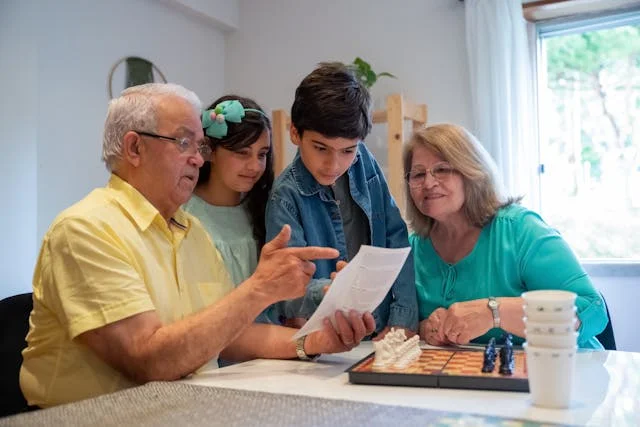Can Local Libraries Help with Dementia Caregiver Resources?
When you’re caring for someone with dementia, it can feel overwhelming. I know how tough it can be to manage all the responsibilities while trying to find reliable information or support. That’s where libraries, the often-overlooked community hubs, can play an essential role. Local libraries are not just about books anymore; they can be powerful allies for caregivers like you.
Yes, local libraries can help with dementia caregiver resources. They offer books, workshops, online tools, and support groups that can make your caregiving journey easier.
What Resources Do Libraries Offer for Dementia Caregivers?
Libraries are a treasure trove of knowledge and services. If you’re a caregiver, you might wonder, “What can a library possibly offer me?” Let me walk you through it.
Books and Guides
Libraries have books about dementia that explain the condition, caregiving techniques, and tips for managing daily challenges. You can find practical guides, memoirs from caregivers, and even medical information written in simple language.
For example, some books talk about how to communicate with someone who has dementia or how to handle changes in behavior. If you’re unsure what to look for, librarians are there to help you find the right materials.
Workshops and Events
Many libraries host free workshops for caregivers. These workshops can teach you how to handle stress, improve communication, or learn new caregiving strategies. Some libraries even invite healthcare professionals to give talks on dementia.
Workshops can also connect you with other caregivers, helping you feel less alone. You might learn something new just by talking to someone in a similar situation.
Support Groups
Some libraries offer space for support groups to meet. These groups let you share your experiences and hear from others who understand what you’re going through. Talking to someone who “gets it” can be a relief, especially on tough days.
If your local library doesn’t have a group, they might know about other groups in your area.
Digital Resources
Libraries also offer access to online resources. You can find e-books, research articles, or caregiver tools through their websites. Some libraries even provide free access to health databases or dementia-related apps.
If you’re not tech-savvy, librarians can guide you on how to use these digital tools.
Do Libraries Help Caregivers Find Local Support?
Absolutely. Many libraries have information boards or booklets with details about local caregiver services. These might include nearby memory clinics, adult daycare centers, or respite care services.
If you don’t know where to start looking for help, your library can be a great first step. They often work with local organizations, so they know what’s available in your area.
Can Libraries Help Children Understand Dementia?

Yes, libraries also cater to younger audiences. If you’re caring for someone with dementia and want your kids or grandkids to understand what’s happening, libraries have books and materials designed for children.
These resources explain dementia in a simple way that kids can relate to. Some libraries even host storytelling sessions or family-friendly events that discuss caregiving themes.
Are Libraries a Quiet Place for Caregivers to Relax?
Sometimes, you just need a moment of peace, right? Libraries can offer that, too. They’re quiet spaces where you can take a break, read, or just sit and relax. Some libraries have cozy corners or even coffee areas where you can unwind.
For caregivers, even a short break can feel like a reset.
Do I Need a Library Card to Access These Services?
Most library services are free, but you might need a library card for some things, like borrowing books or using online resources. Getting a card is usually quick and easy. Just ask your local library staff, and they’ll guide you through it.
What If I Can’t Visit the Library?
If you can’t leave home, don’t worry. Many libraries offer home delivery services for books and materials. Some even have mobile libraries—vans filled with books and resources that travel to different neighborhoods.
You can also explore their online services, which you can access from home with a library card.
Why Should You Consider Libraries?
Libraries are more than buildings with bookshelves. They’re community hubs designed to support you in many ways. Whether you’re looking for practical tips, emotional support, or just a quiet moment, your library might have exactly what you need.
Key Points to Remember
- Libraries offer books, guides, and practical resources for dementia caregivers.
- Free workshops and support groups can connect you with helpful advice and others in similar situations.
- Digital tools and health databases are available online through many libraries.
- Libraries provide information about local caregiver services, memory clinics, and respite care.
- Resources for children help explain dementia in simple terms.
- Libraries can be a peaceful spot for caregivers to relax.
- Many libraries deliver materials to those who can’t visit in person.
Thanks for reading! I hope this article gave you some ideas about how your local library can help. If you have any questions, feel free to comment below.

